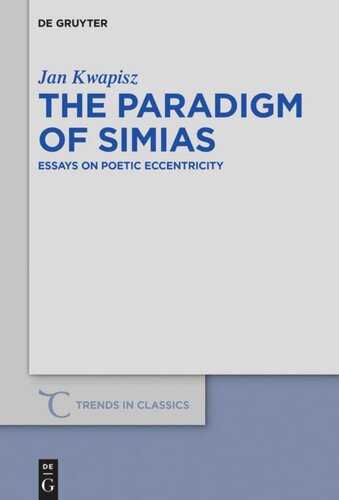

Most ebook files are in PDF format, so you can easily read them using various software such as Foxit Reader or directly on the Google Chrome browser.
Some ebook files are released by publishers in other formats such as .awz, .mobi, .epub, .fb2, etc. You may need to install specific software to read these formats on mobile/PC, such as Calibre.
Please read the tutorial at this link: https://ebookbell.com/faq
We offer FREE conversion to the popular formats you request; however, this may take some time. Therefore, right after payment, please email us, and we will try to provide the service as quickly as possible.
For some exceptional file formats or broken links (if any), please refrain from opening any disputes. Instead, email us first, and we will try to assist within a maximum of 6 hours.
EbookBell Team

5.0
38 reviewsThis book’s concern is with notoriously obscure ancient poets-riddlers, whom it argues to have been an essential, albeit necessarily marginal, element of the literary landscape of Antiquity, which, in addition, exerted subtle yet lasting influence on European culture. The three first essays in this book trace a direct line of influence between the early Hellenistic scholar-poet Simias of Rhodes, the late Republican Roman experimentalist Laevius and Constantine the Great’s virtuoso panegyrist Optatian Porfyry, whereas the fourth essay discusses the preservation and transformation of the model invented by Simias in Byzantium. The Appendix reflects on the triumph of this intellectual paradigm in Neo-Latin Jesuit education by investigating the case of a peripheral yet highly influential Central European college at the turn of the sixteenth and seventeenth centuries. This book is at once a contribution to the scholarship on the reception of Hellenistic poetry and to the study of ancient ‘technopaegnia’ (i.e. playful poetry) and their cultural influence in Antiquity, Byzantium and post-mediaeval Europe.